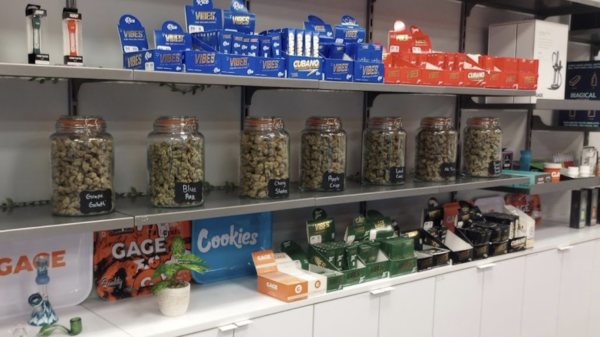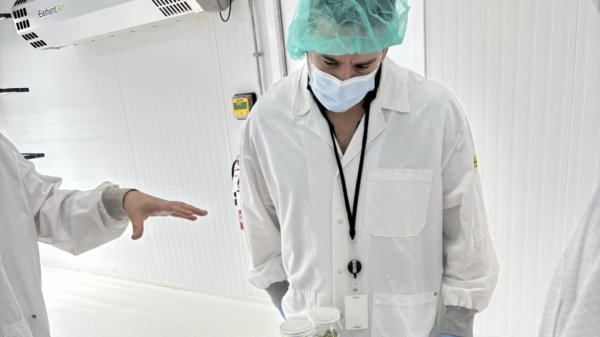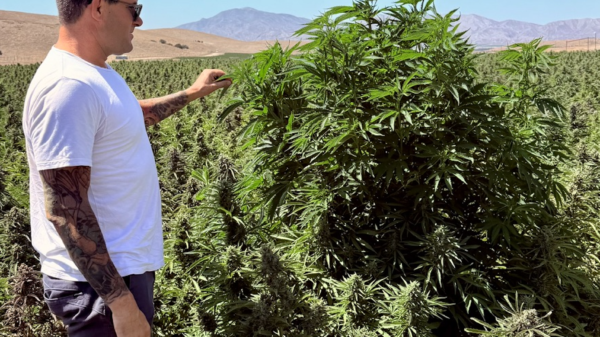Non-prescription cannabidiol’s health craze status is outpacing its proven effectiveness on a worldwide scale.
That’s according to an extensive report on accessing CBD in nine countries, led by researchers from the University of Sydney and published in the International Journal of Drug Policy. The paper underscores an ongoing trend of CBD’s massive popularity among consumers despite a lack of clinical evidence for the benefits of low-dose applications, as well as inconsistent regulatory regimes.
The accessibility of CBD products was examined in Canada, Germany, Ireland, United Kingdom, United States, Switzerland, Japan, Australia and New Zealand as of May 2020. A range of products appeared to be accessible without prescription in all of the countries except Australia and New Zealand where CBD remains medical-use only.
Read more: Ottawa’s strict CBD rules blocks $2.5B market potential: report
While the researchers found a wide variety of non-prescription products available, the daily recommended doses were typically well below 150 milligrams and “substantially lower” than doses reported to have therapeutic effects in published clinical trials — namely, amounts exceeding 300–1,500 milligrams.
Legal frameworks enabling access were often unclear, with marketed products sometimes failing to meet legal requirements for sale. There were obvious disparities between federal directives and available products in both the U.S. and European countries examined.
To address these issues, and as consumer demand further escalates, the researchers call for improved legislation, guidelines, quality control as well as more clinical trials exploring the therapeutic benefits of low-dose CBD formulations.
Interest in CBD from the scientific community and the general public has expanded dramatically in recent years, alongside pre-clinical and clinical studies into the treatment of conditions including epilepsy, anxiety, chronic pain and even Covid-19.
Read more: CBD can treat physical and mental Covid-19 symptoms: study
Read more: FDA issues cannabis research guidelines as CBD industry still hangs in limbo
The problem is when availability gets ahead of science — as has happened with low-dose CBD products — and we have to scramble to back-fill evidence for a global phenomenon, says Iain McGregor, lead author and academic director for the Lamert Initiative for Cannabinoid Therapeutics at the University of Sydney.

Professor Lambert says the worldwide CBD phenomenon is unique among regulated substances. Submitted photo
“Current scientific evidence only really paints a compelling picture for therapeutic effects of doses of CBD that are 300 milligrams and above,” the psychopharmacology professor tells Mugglehead in an email. “Many enthusiasts ‘know’ CBD (e.g. 15 milligrams per millilitre hemp oil) works for them — including many of my friends — but the scientific proof is simply not there.”
McGregor believes within two-to-three years this issue will be settled. We need four or five high-quality clinical trials in key areas to report positive results, he says — anxiety, insomnia, chronic pain and addictive disorders — before he and other scientists can feel relaxed in guiding intelligent policy.
“Those currently cashing in on the global CBD gold rush should feel a moral obligation to run these trials,” McGregor says. “The regulators will then have a much better framework on how to set their dials with these products.”
Read more: Canopy launches CBD website in US despite lack of FDA regulations
The HUSH (Hemp Use in Sleep and Health) trial is a flagship study his team is about to launch at the Lambert Initiative that aims to establish whether 20, 40 and 60 milligram CBD hemp products have any benefits. The research will measure how low doses affect sleep, mood, cognition as well as relevant blood biomarkers including endocannabinoids and markers of inflammation. HUSH will track dosing for 12 weeks in a population of 40–65 year-olds.
Because CBD is non-intoxicating and is tolerated by the human body in large doses, non-prescription availability has proliferated across the globe even in countries like the U.K. and U.S. where its regulatory status is mixed.
Even in Canada, where the substance is legal and strictly regulated to preclude any related health claims, consumer confusion about its status prevails en masse. Unregulated products remain widely available on websites, and many low-dose CBD products are widely sold on the licit market.
CBD’s global popularity, expanding international trade and huge regulatory variance from country to country suggest gains to be had from increased coordination.
“We already have a clear message from the [World Health Organization] that CBD is safe and should not be subject to control by international treaties (i.e. the single convention on narcotic drugs),” McGregor explains. “If the [United Nations] were to ratify that decision then what we would have is a worldwide directive on how CBD should be managed, although individual countries might still set their own parameters.”
There’s a great deal of concern around the manufacturing quality of CBD products, he says, which needs attention.
“The implications of buying CBD with a much higher than stated THC content can be catastrophic for individuals subject to workplace or roadside testing or those with certain medical conditions. We know that many products in the [European Union] and North America have labelling that is wildly inaccurate.”
“It is hard to regulate this in the current ‘wild west frontier’ of the CBD marketplace, but it is essential that we do.”
Top image: Some self-reported studies suggest low-doses of CBD help people sleep better. Photo by Mark Sebastian via Wikimedia Commons
nick@mugglehead.com
@nick_laba















GREENA STORE
January 29, 2021 at 7:45 am
This is a great inspiration. I am pretty much pleased with your good work. You put really very helpful information.